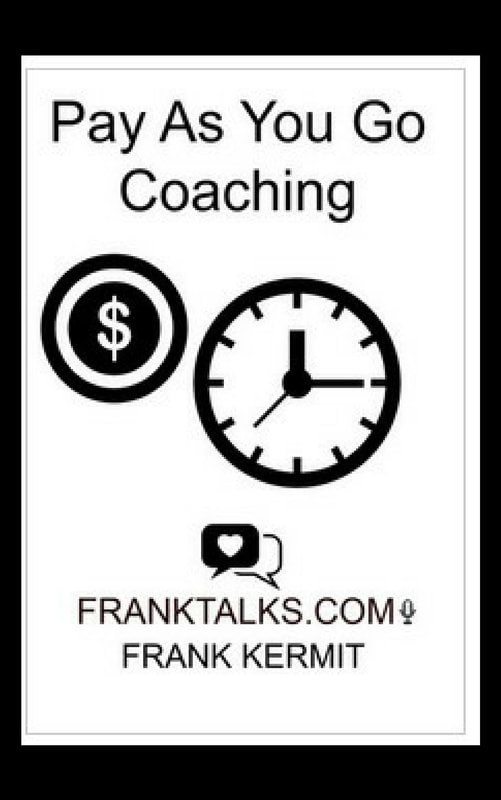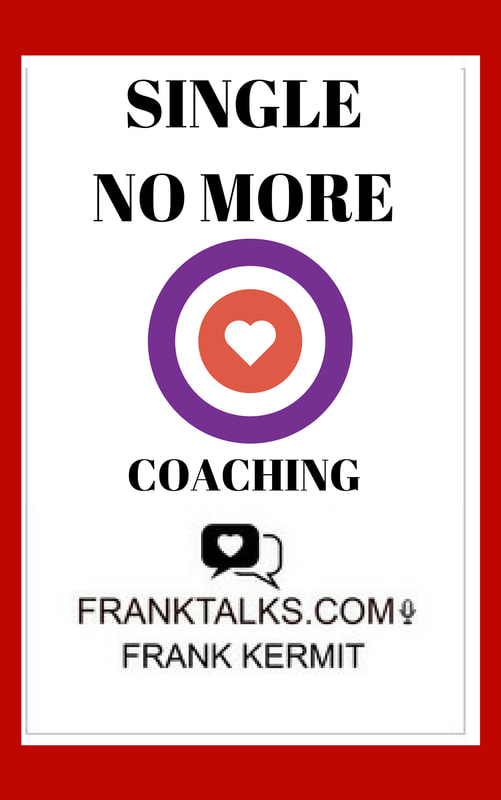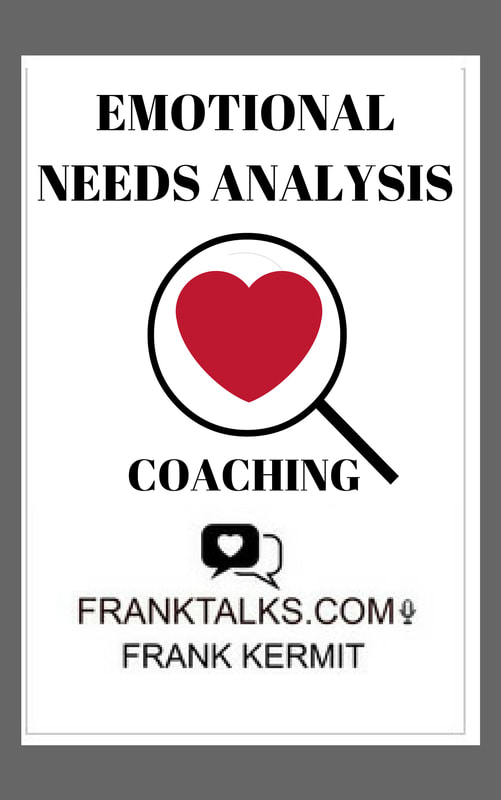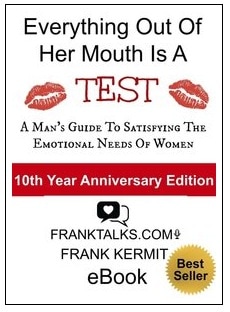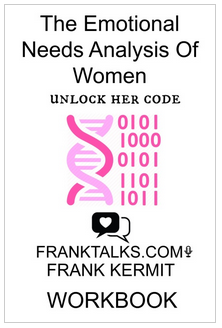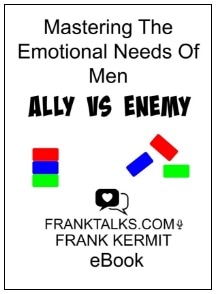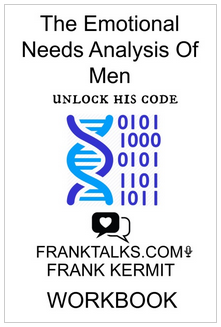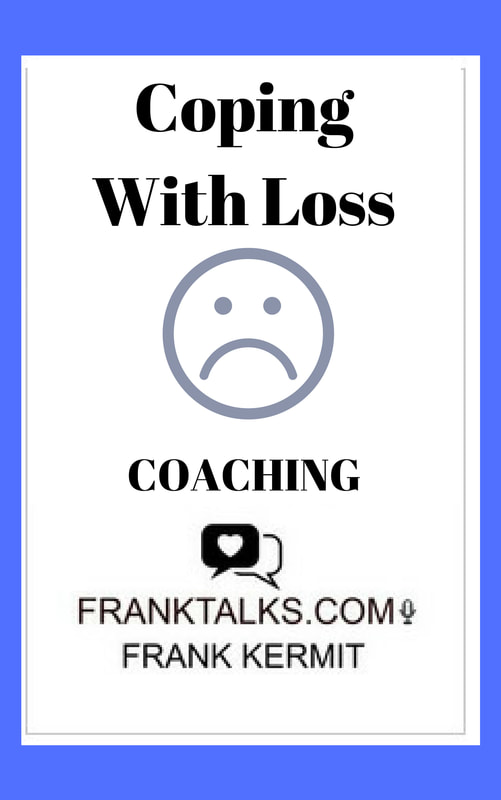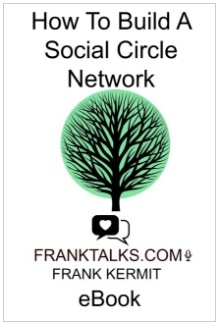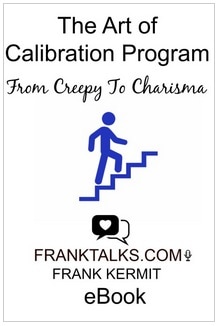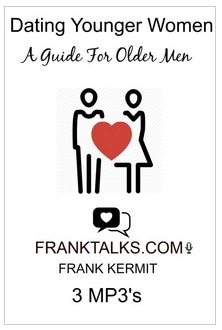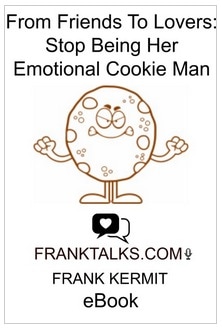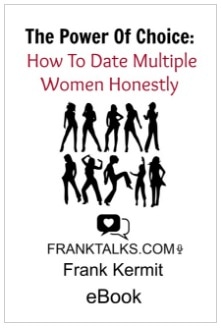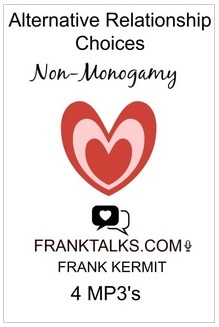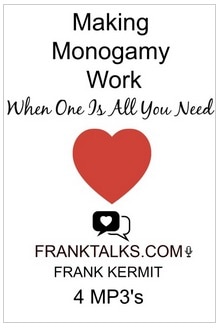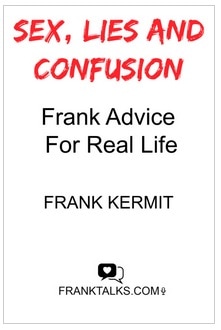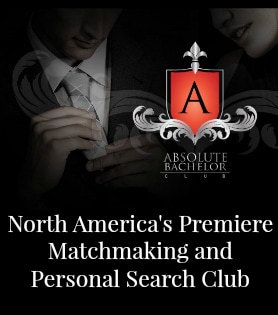|
People Pleasers Are Problem Daters By Frank Kermit At the heart of every great people pleaser is the best of intentions of wanting to be liked by the other person. And that is why people pleasers, as nice as they are, are never fully trusted by the target of their affections. When someone wants to please a person, that is OK, provided that the person feels the attention is earned. The problem is that a people pleaser is too nice by nature. People pleasers see themselves as being appropriate, while their dates feel a vibe of insincerity. In the minds of potential partners, no one is that nice, unless there have ulterior motives. In fact, that is the paradox of the people pleaser. They do not want the other person's money, resources, or even material possessions. All they want is to be liked Because people pleasers want to be liked so badly, they allow themselves to be disrespected. One of the principles I teach in my coaching workbooks for men and women, "I'm A Man, That's My Job" and "I'm a Woman, It's My Time" respectively is that to make any relationship work is that it MUST be more important to the person to want to be respected by your potential partner, instead of being liked. If all you know how to do is to be liked, you will get ATTENTION, but you will struggle to find any long lasting and legitimate intimacy. No one loves a person that does not have his or her respect as well. People will like a people pleaser, but people will never fully respect nor trust a people pleaser. Without respect and trust, there can be no love. There can be like, even lust in some cases, but never a love that leads to commitment. At the heart of a people pleaser, is fear:
That is why people pleasers lack boundaries. Without proper boundaries, a people pleaser does not have to deal with any of that unpleasantness nor do they have to act in ways in which they might self identify with their own abusers who were mean or insulting to the pleaser. Unfortunately, that repeating behavior pattern can only lead to attracting and being attracted to people that would continually take advantage of the people pleaser. A Possible Source of People Pleasing The skill of people pleasing can, but not always, be sourced to emotionally abusive upbringings. Depending on the severity of the mental and emotional abuse, the people pleaser skill set is likely what allowed a number of children to survive unhealthy family environment where unpredictable adult temperament behaviors ran rampant. A child learns to be a people pleaser in order to appease and maintain the peace with emotionally unhealthy adults. When that child grows up, they take those behavior patterns; they now associate to attachment, and get stuck in emotionally unhealthy relationships. When a people pleaser is actually with someone that appreciate them without the unreasonable expectation of having to be pleased every step of the way, a people pleaser will often not be able to recognize that as an emotionally healthy dynamic and will often find themselves feeling empty. The Pros of Being a People Pleaser There are good qualities to being a people pleaser. Being a people pleaser is a great quality in the correct context. On the job, the characteristics of a great people pleaser make for excellent customer care service. Some of the most independent self-employed workers are amazing people pleasers. So are people who excel at being support staff. People Pleasers And Love Life But in romantic relationships, being a people pleaser will only net you the kinds of partners who are too insecure to manage a partner who understands how to prioritize the needs of the relationship, the needs of the partner and the needs of the people pleaser. There is a difference between:
A giving person gives what they can without giving up so much, that they themselves end up sacrificing their own needs. For example, a student has an exam to study for the next day, and gets a call from her boyfriend to come over because he is feeling a little lonely. The giving person weighs the options of her own need to study, and her desire to keep her boyfriend happy. In the event that the boyfriends' request is not dire (they can see each other after her exam) and her own need for study is very important, a giving person would put her own needs in priority. It does not take away from her being a giving person; it just means she can acknowledge what is more important at the moment. A people pleaser however, would want the approval of her boyfriend so badly, that she would jeopardize her exam, just because she wants to keep her boyfriend from being slightly upset. See the difference? Why does it not work in relationships? Let's say you are on a date, and your date asks you a common date question, such as:
A people pleaser will ONLY give the answers that they think the other person WANTS to hear but not the answer they would actually want to give. This leads to unrealistic expectations on both parts. The people pleaser expects that EVERYONE behaves like a people pleaser, and thus does not factor in how misleading they are actually being on a first date. The potential partner, who is unaware of the people pleasing behavior pattern, takes what is being communicated at face value...only to discover at a later time, the person they are dating is not what they thought. It does not stop there. People pleaser will please others to the point of feeling anger and resentment for doing things they initially agreed to do, because they feel they cannot say no. Eventually, the pleasers...EXPLODE! Partners get the brunt of the explosion, and end up feeling resentful too, because they are not mind readers. And rightly so, however part of being a surviving people pleaser is the anticipation of the dysfunctional emotional cues of the adults they grew up with. The biggest mistake that people pleasers make is the assumption that everyone had to survive childhood acting a like a people pleaser. Don't Be a Sheep! To simplify why people pleasers do not generate trust in relationships, here is a symbolic analogy: people pleasers are just like sheep. You can trust a Shepherd to be a good Shepherd as long as there is a value for value relationship going on (respect). You can trust a wolf to be a wolf, because you can acknowledge the good and bad in a wolf, and the wolf never tries to be anything other than a wolf (trust). But you can never trust a sheep. So the next time you are on a date, and you end up in a situation where you need to communicate and or enforce a boundary, and you have a choice to make: Speak your mind and do not be a sheep
7 Comments
Matt
3/26/2017 09:52:32 am
there is a book i read "No more Mr. Nice Guy" by Dr. Glover. It was like reading a autobiography of myself. I have learned of myself along with this being "nice", "I" and I assume every guy with the this trait can carry a degree of shame "not being good enough or flawed" can have a codependency trait along with it. What are some awareness or steps to take to recover per say from this type of behavior?
Reply
3/26/2017 10:22:58 am
Hi Matt, First you have to come to terms with having boundaries. This means to know what your boundaries are, and THEN learning to express them. My coaching workbook for men, I'm A Man, That's My Job will easily take you through a series of writing exercises to help you determine what your boundaries are. Fair warning...this WILL solve your problem of being too nice (nothing wrong with being a good guy, but when you allow yourself to be used by people, that is when you are too nice) but it will also affect other areas of your life where you will be able to stand up for yourself with your family and even at work. Copy and paste this link into the url http://www.franktalks.com/store/p9/I%27M_A_MAN_THAT%27S_MY_JOB_WORKBOOK_EBOOK.html or go to the books section of this website to buy the coaching workbook. A couple of coaching sessions would be a good idea as well. -Frank
Reply
James Smith
8/1/2018 10:59:45 am
Hello Frank,
Reply
8/1/2018 12:17:24 pm
If you need her to change before you marry her, it may be a sign that you should hold off on marrying her. Shaming you in front of others is not acceptable for a working marriage. Work is important and if she has the kind of job that demands a lot of her time, you need to accept and be supportive of that (if there are other issues I am missing, perhaps a coaching session with me as a couple would be in order). Bottomline is that it take EVERYTHING you got to make a marriage work (only 50% success rate, and that does not include people who are miserable and stay married). Do not get married, unless you can both resolve these things while you are still engaged. Marriage and children add more pressure; and if your foundation has cracks in it, your marriage will not survive. I offer pre marriage coaching to get you both on the same track: have a look at it here: http://www.franktalks.com/couples-coaching-systems.html
Reply
Con Manson
11/27/2019 06:00:22 pm
Thank you for the article. My people pleaser girlfriend of over three years has pulled me through a nearly three month breakup that she initiated, claiming she had lost her voice in the relationship and couldn't gain in back in my presence. She claims to want to break her patterns. But much of her story never appear authentic. She has, and I've allowed her to break passive no contact the last two times, and it has first been to assure me I could start dating, and the second time asking me to assure her that I was okay with how everything had come about. It came out that she had a date that evening. Finally it came together. The other man and her had connected months before she split up with me. She had actively sought him out. What a complete disappointment that this seemingly wonderful partner ends up behaving in a fashion that is so hurtful to the mam who has chosen to love her.
Reply
This is a very interesting article. Being a people pleaser may seem like a positive trait, but it can also come with its own set of fears and boundaries. People pleasers often struggle with saying "no" and setting boundaries, which can lead to burnout and resentment. Identifying a people-pleasing personality can be done by observing someone who constantly puts others' needs before their own. To avoid this behavior, it's important to practice self-care and learn to prioritize your own needs.
Reply
6/15/2023 05:19:23 am
Frank's article on the problems with people pleasers in dating is a real eye-opener. His insights on why they can't be trusted are both unique and intriguing. I particularly enjoyed his symbolic analogy of people pleasers being like sheep, always following the herd and lacking the ability to think for themselves. This analogy is spot-on, as we've all seen how easily sheep can be led astray. For example, just like sheep blindly following each other over a cliff, people pleasers often go along with decisions that are not in their best interest just to please others. Overall, thank you Frank for this insightful and helpful article.
Reply
Leave a Reply. |
Categories
All
Archives
June 2024
NDG Encore Singing Chorus **** Every Friday Night Dr. Laurie Betito Quotes
|
|
FRANK KERMIT MA
EXPERT RELATIONSHIP COACH HELPING PEOPLE CONNECT |
ALL COACHING IS BY TELEPHONE OR SKYPE ONLY INTERNATIONAL CLIENTS ARE WELCOME *INTERNATIONAL CLIENTS ARE RESPONSIBLE FOR LONG DISTANCE PHONE CHARGES, +1 Canada/USA* SKYPE IS PREFERRED. IT'S FREE AND EASY TO USE FROM ANYWHERE IN THE WORLD TELEPHONE: +1-514-680-3278 EMAIL: [email protected] SKYPE: frank kermit PLEASE NOTE THAT ALL SALES ARE FINAL. NO REFUNDS OR EXCHANGES
|

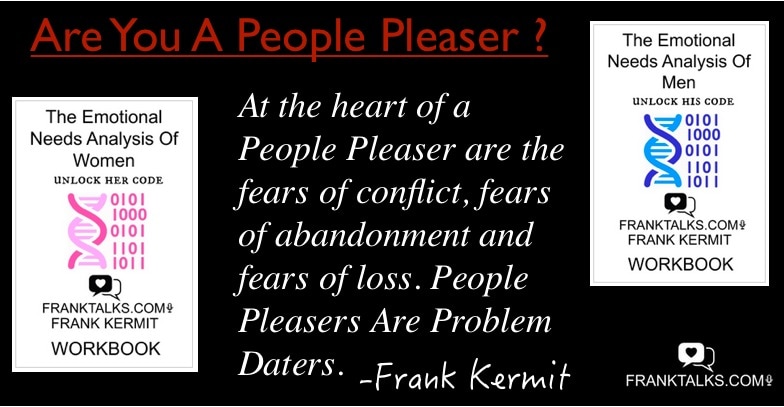

 RSS Feed
RSS Feed


